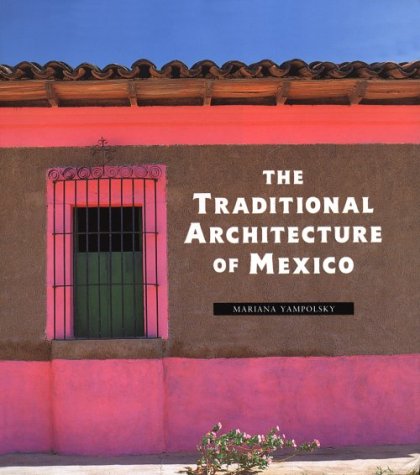In Mexico, nearly five centuries after the Spanish Conquest, the descendants of the Aztec and the Maya may no longer build pyramids, but their rural dwellings reflect the past in other ways: perfectly adapted to their environment, they incorporate natural materials such as palm for thatching, wattle, stones, adobe bricks and wood. They include an astonishing variety of forms - round, square, oblong - with roofs that can be conical, apsidal or pyramidal. In larger villages and mestizo towns, rooms are often grouped around an inner courtyard; facades are painted in vibrant colours. A different tradition is found in the rural haciendas, long past their golden age but now finding new patrons keen to restore or recreate them and their designs. In the 19th century especially, Gothic arches and battlements and Moorish minarets were transposed to landscapes of agave and prickly pear. Luxuriant gardens, unroofed quadrangles full of flowers, tiles from England and statues from Paris completed the picture.
With the aid of plans and other historical illustrations, Chloe Sayer traces the story of traditional building and defines in detail architecture both private and public, rural and urban, Indian and colonial. Mariana Yampolsky's photographs represent a lifetime's work devoted to the subject. Sayer's many publications about Mexico include the book of the six-part BBC series "Of Gods and Men: Mexico and the Mexican Indian" (with Anna Benson-Gyles) and "The Arts and Crafts of Mexico" (Thames and Hudson, 1990).
- ISBN10 0500341281
- ISBN13 9780500341285
- Publish Date 24 January 1994
- Publish Status Out of Print
- Out of Print 2 August 2000
- Publish Country GB
- Imprint Thames & Hudson Ltd
- Format Hardcover
- Pages 208
- Language English
